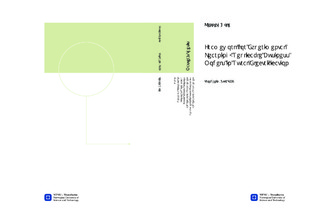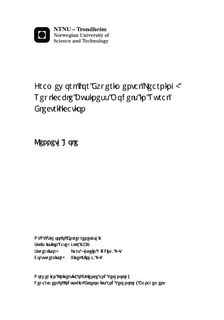| dc.description.abstract | Lack of access to electricity is a significant hindrance to boost economic development, knowledge creation and health improvement in developing countries, specifically for people in rural areas. Even though governments play a key role in building infrastructure, they do not have the capacity or the financing to fulfill these needs. Thus entrepreneurs play a vital role by introducing solutions for electricity based on renewable energy. They are able to perceive the risk, willing to take it and able to develop customized functional solutions that also are based on sustainable business models. In this paper, the author does multiple case studies and the theoretical backbone consists of literature about business models, business model innovation, replication and literature describing the challenges in the context of bottom of the pyramid markets in developing countries. Based on the findings, the author has developed a conceptual framework for experimental learning, which clarifies the business model innovation process to enable replication in the context of rural electrification by community-level mini-utilities. Divided into two phases, the framework first describes the learning process and how the process of accumulating knowledge about the Arrow Core and developing rules are best conducted. It recommends a linear but iterative process, where the firm enters one village at the time and develops the needed sustainable local business model for each specific village. In doing so it accumulates knowledge both about the business model and the context, which it can then exploit to build a larger company through replication in the second phase. The contributions are twofold: the author first suggests a more dynamic approach than the existing business model innovation literature by developing a step-wise conceptual model. Second, this model has practical implications for entrepreneurs, describing the process that can be used in their own commercialization efforts. | nb_NO |

